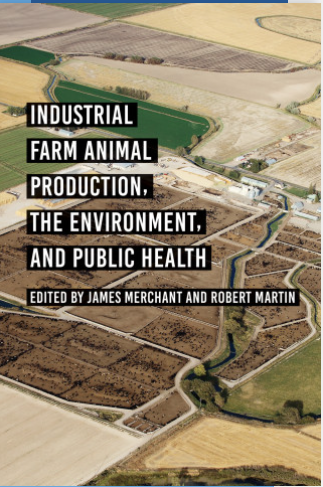Industry-funded study of the week: animal v. plant proteins
In its scientific report, the 2025-2030 Dietary Guidelines Advisory Committee recommends substituting plant proteins for animal proteins.
The Committee recommends that the proposed Eat Healthy Your Way Dietary Pattern emphasizes dietary intakes of beans, peas, and lentils while reducing intakes of red and processed meats….The Committee also proposes reorganizing the order of the Protein Foods Group to list Beans, Peas, and Lentils first, followed by Nuts, Seeds, and Soy products, then Seafood, and finally Meats, Poultry, and Eggs.
It did not take long for the meat industry to respond: Animal vs. Plant Protein: New Research Suggests That These Protein Sources Are Not Nutritionally Equivalent.
As is my habit, I went right to the study.
The study: Connolly G, Hudson JL, Bergia RE, Davis EM, Hartman AS, Zhu W, Carroll CC, Campbell WW. Effects of Consuming Ounce-Equivalent Portions of Animal- vs. Plant-Based Protein Foods, as Defined by the Dietary Guidelines for Americans on Essential Amino Acids Bioavailability in Young and Older Adults: Two Cross-Over Randomized Controlled Trials. Nutrients. 2023; 15(13):2870. https://doi.org/10.3390/nu15132870
Conclusions: “The same “oz-eq” portions of animal- and plant-based protein foods do not provide equivalent EAA content and postprandial bioavailability for protein anabolism in young and older adults.”
Funding: “This research was funded by the Pork Checkoff and the American Egg Board—Egg Nutrition Center. The supporting sources had no role in study design; collection, analysis, and interpretation of data; writing of the report; or submission of the report for publication.”
Conflicts of Interest: “When this research was conducted, W.W.C. received research funding from the following organizations: American Egg Board’s Egg Nutrition Center, Beef Checkoff, Pork Checkoff, North Dakota Beef Commission, Barilla Group, Mushroom Council, and the National Chicken Council. C.C.C. received funding from the Beef Checkoff. R.E.B. is currently employed by Archer-Daniels-Midland (ADM); the research presented in this article was conducted in a former role and has no connection with ADM. G.C., J.L.H., E.M.D., A.S.H. and W.Z. declare no conflict of interest. The funders had no role in the design of the study; in the collection, analyses, or interpretation of data; in the writing of the manuscript; or in the decision to publish the results.”
Comment: Amino acids, the building blocks of protein, are the same whether they come from plants or animals (or us). Food animals are closer to us evolutionarily than are plants; the animo acid composition of their proteins is more like ours than the amino acid composition of food plants. That is why protein complementarity matters; mix and match the plants you eat and their amino acid compositions will complement each other and fill in the gaps. This doesn’t even have to be done at every meal. Overall, it’s easier to get the needed amino acids from animal foods but it’s not all that hard to get them from plants as long as they are varied and you eat enough of them. So the study isn’t wrong; it’s just not telling the whole story.
Thanks to Kevin Mitchell for sending this one.



